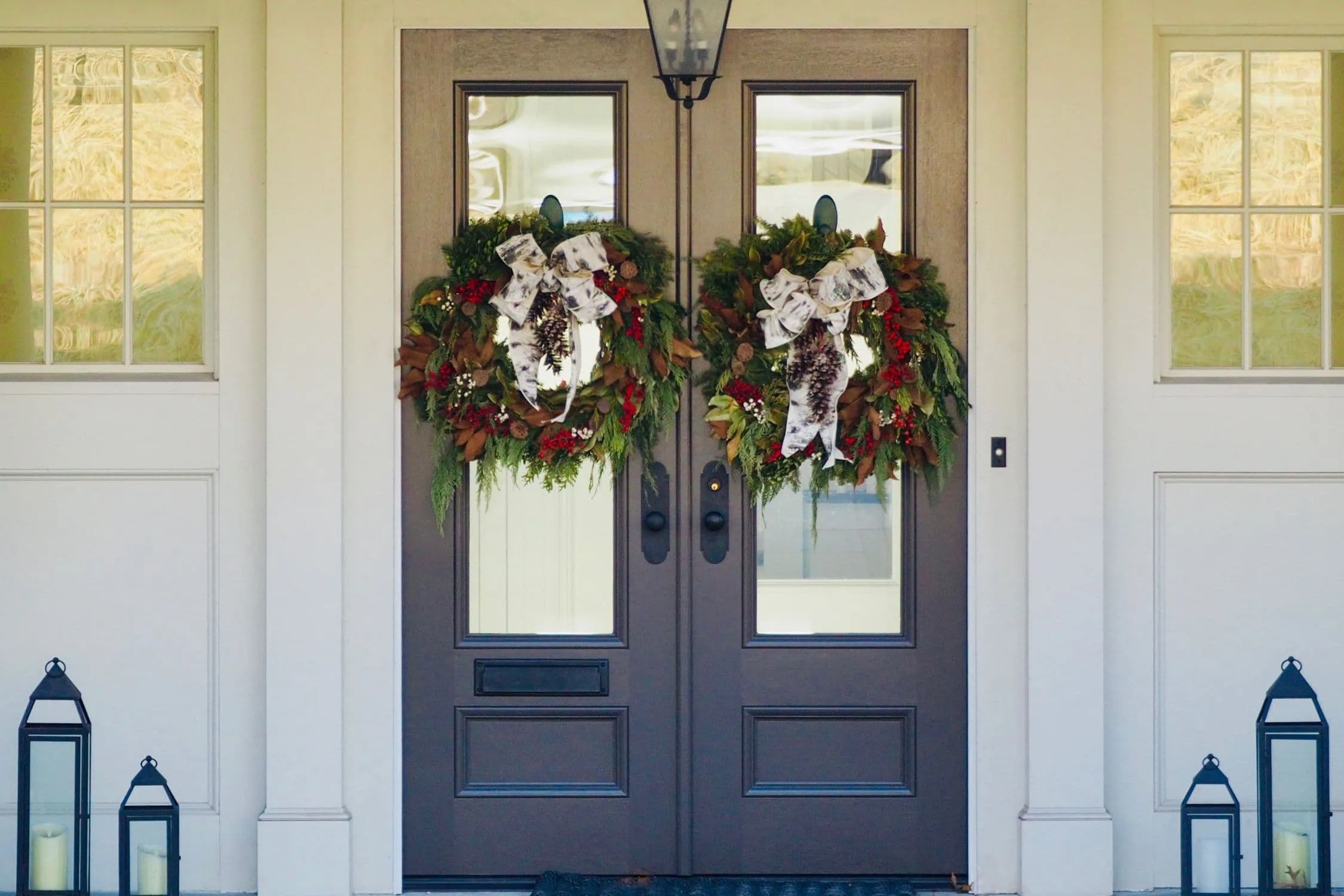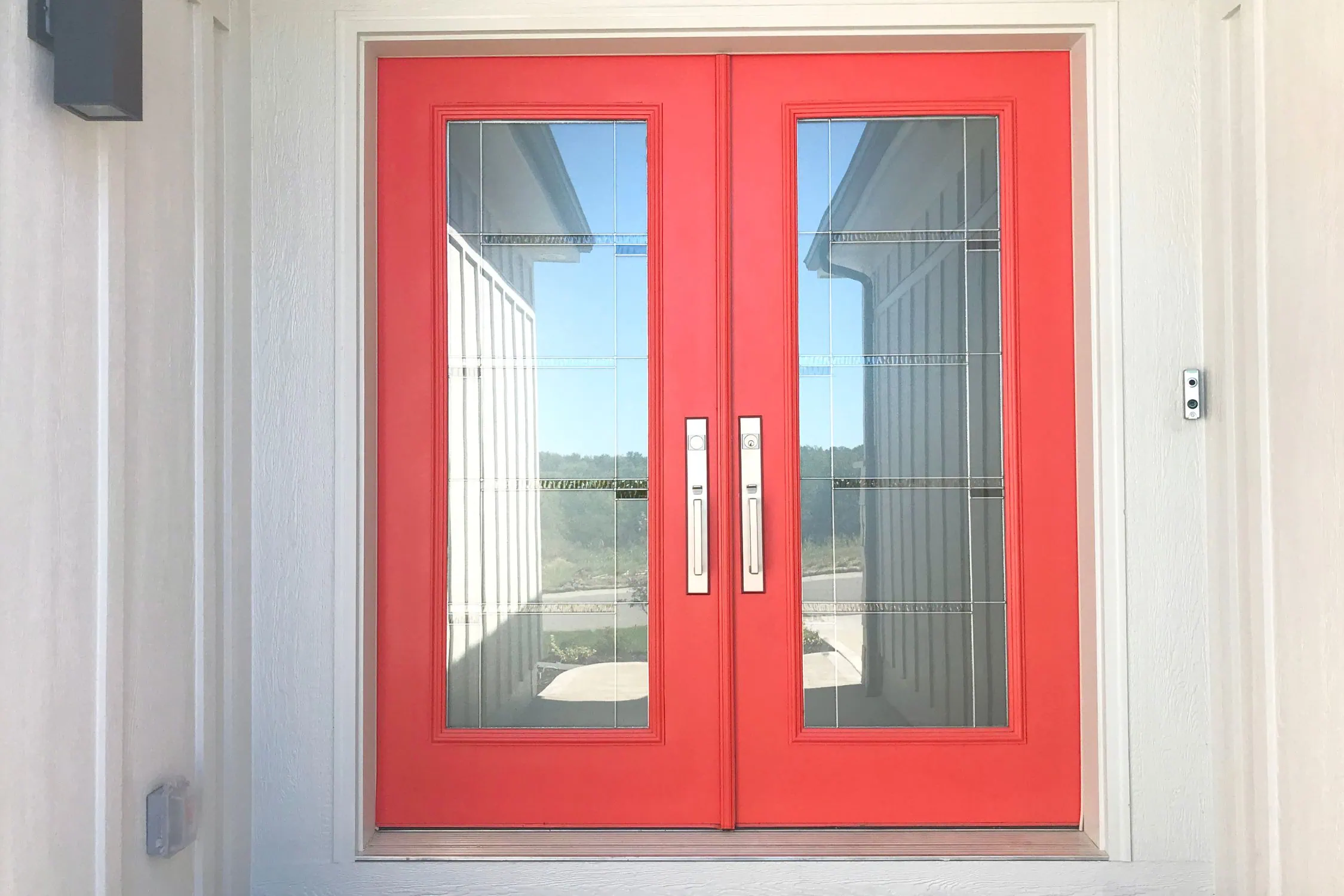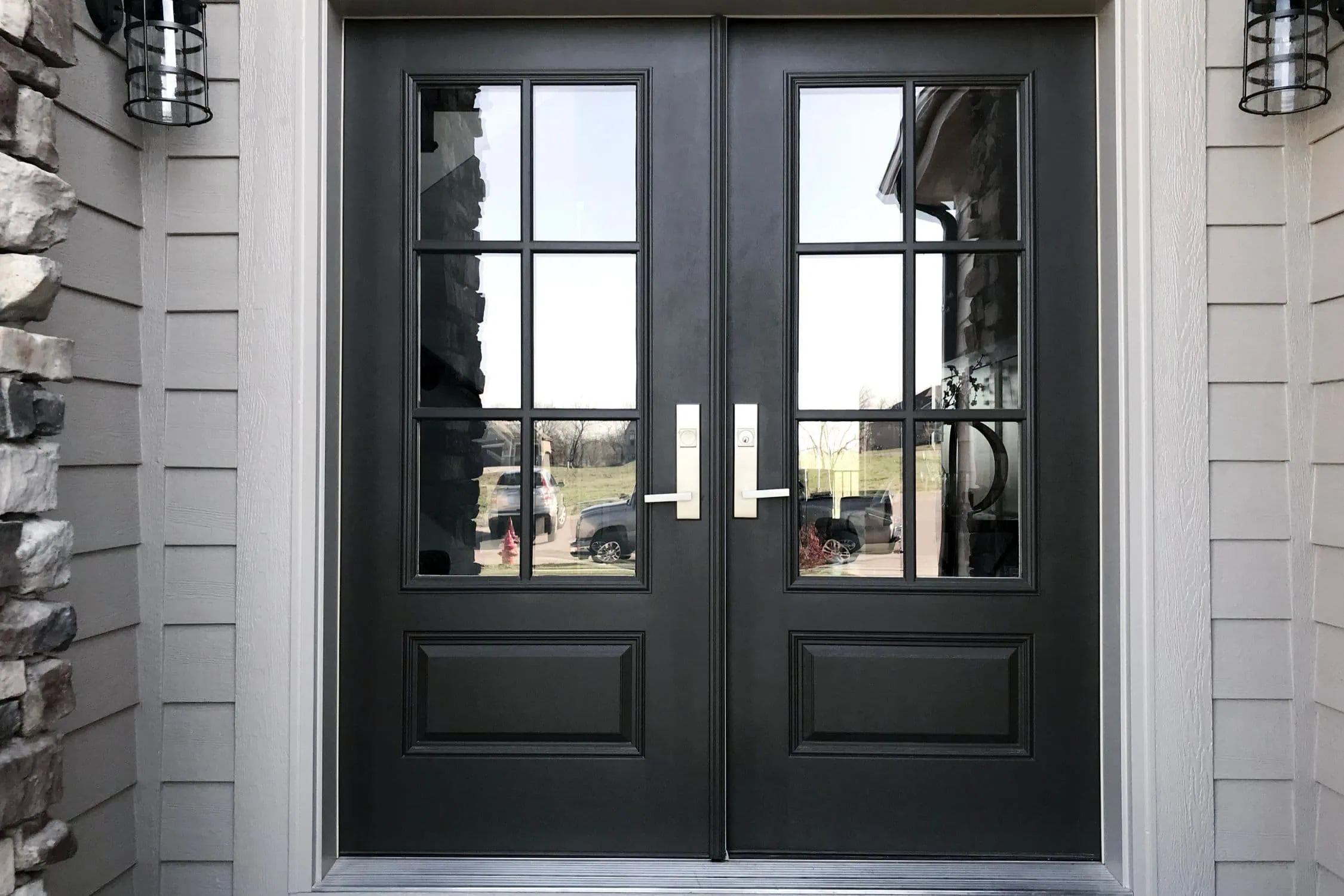I’ve installed hundreds of doors since 2001 — single, double, custom, you name it. But when it comes to double doors, homeowners often come in with one image in their head: classic French doors, panes of glass, maybe a white frame.
Fair enough — they’re popular. But double doors come in all shapes and sizes. Some scream luxury. Others quietly serve a purpose. Some open inward with grace; others slide wide open onto a patio. And knowing which is which (and when to use them) can save you money, space, and hassle.
Let’s break it all down — types, features, design ideas, and how to choose a double door that works in the real world, not just on Pinterest.
Key Takeaways
- Double doors aren’t just for looks — they affect clearance, insulation, security, and lifestyle
- French doors are charming but need extra care in cold climates
- Sliding doors are sleek and functional, but need maintenance
- Solid double entry doors offer presence and insulation, but need proper space
- Always match your door style to your home’s layout and your daily needs
Types of Double Doors Explained
Here’s a no-nonsense look at the most common double door types — their style, how they function, and where they tend to shine.
French Double Doors
Classic and light-filled. French doors are two-hinged doors (typically opening outward or inward) with multiple glass panes — perfect for adding elegance and light to both interior and exterior spaces.
Best for:
- Traditional homes
- Adding natural light
- Connecting indoor to outdoor spaces
Watch out for:
- Glass means less insulation
- Needs proper sealing to avoid drafts
Double Entry Doors
Your classic front-of-house statement piece. These are two solid doors (with or without glass) that swing open at the main entrance.
Best for:
- Grand facades
- Symmetrical architecture
- Wide entryways
Watch out for:
- Takes up more space to swing open
- Requires more precise installation for security and sealing
Sliding Double Doors (Patio Style)
No swing space needed. These doors slide horizontally on tracks, often leading to patios or decks. One panel is usually fixed; the other slides open.
Best for:
- Modern homes
- Spaces with limited clearance
- Seamless indoor-outdoor flow
Watch out for:
- Tracks require cleaning/maintenance
- Locks can be weaker than swing doors unless upgraded
Not sure where to start? Browse our double front doors collection for real examples.
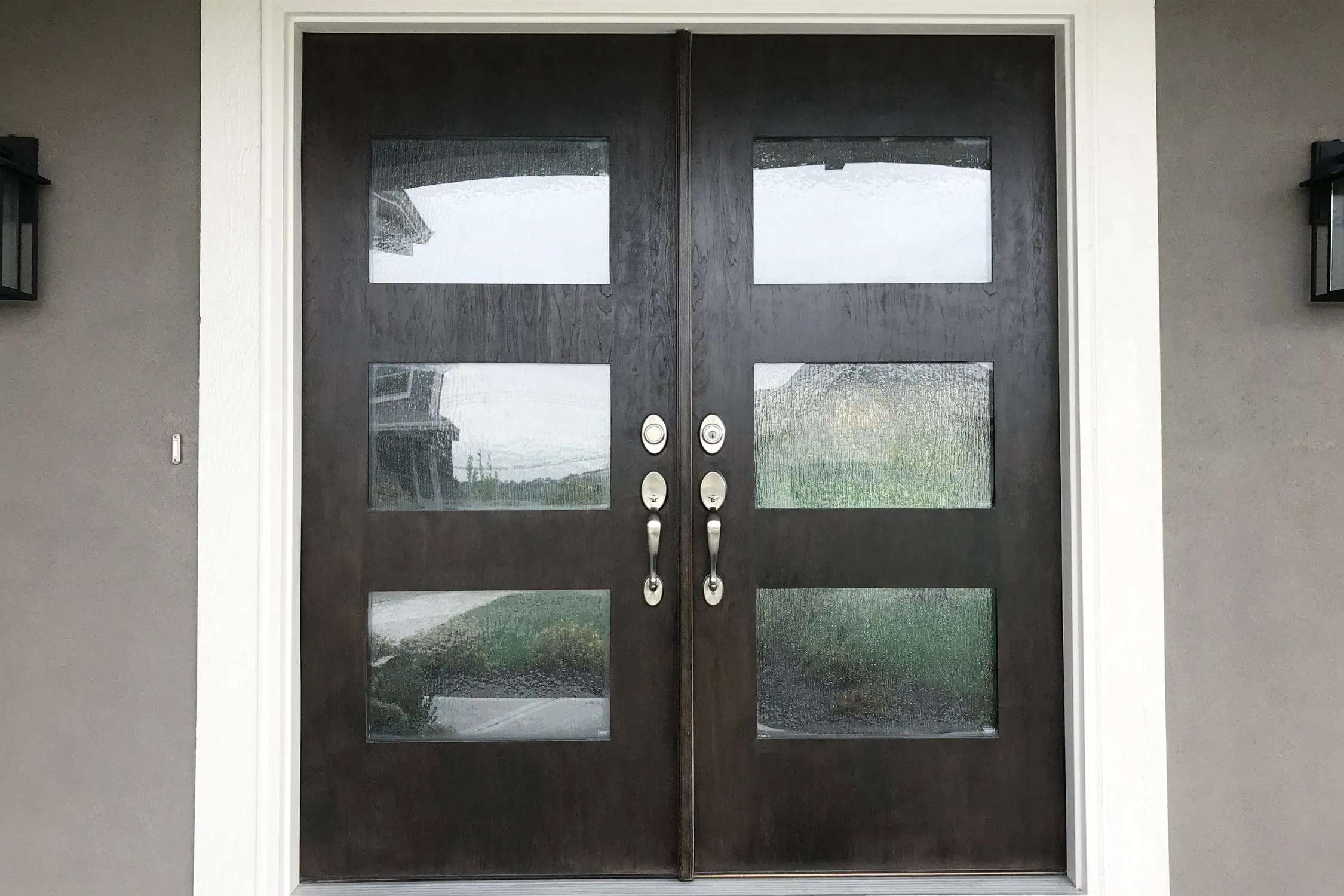
Double Door Design Elements to Consider
Choosing a type is step one — but how that door looks and functions comes down to the finer details. Here are a few things I always run through with clients:
Wall Space & Swing Clearance
Do you have enough width on either side for the doors to open? If not, sliders or offset swing doors (with an active + passive leaf) might be better.
Insulation & Seals
Don’t just fall for the look. Ask about thermal breaks, compression weather seals, and how much air gets through that door in winter.
Privacy vs Visibility
Clear glass looks amazing… until it doesn’t. Frosted, tinted, or textured glass can give you the light without sacrificing privacy.
Active vs Passive Door
In many setups, one door is used daily while the other stays locked most of the time. Make sure the passive door has good flush bolts and stays secure.
Front Double Door Design Ideas Based on Home Style
Your home’s architecture should guide your double door design — here’s a quick cheat sheet:
|
Home Style |
Ideal Double Door Look |
|
Modern / Minimalist |
Slim-frame sliders or smooth fiberglass double entries |
|
Traditional / Colonial |
Symmetrical French doors with sidelights |
|
Farmhouse / Country |
Wide swing doors, natural wood, or vertical panel design |
|
Mediterranean |
Arched double entries with wrought iron or scrollwork |
|
Contemporary |
Matte black, oversized glass, no visible hinges |
Color and Finish Ideas for Double Doors
Don’t let your doors fade into the facade — a strong color or texture can make the whole entry pop.
Popular Choices in 2026:
- Matte black: Sharp, modern, and always in style
- Deep navy or charcoal: Adds richness without going too bold
- Woodgrain fiberglass: Low maintenance, high impact
- White on white: Still classic, especially with colonial homes
- Bold red or forest green: Great for personality-driven curb appeal
Tip from the field: Don’t forget about sheen — glossy doors look crisp but show every fingerprint. Satin or low-lustre is usually safer.
Hardware and Decorative Features
Hardware finishes the door like a good belt finishes an outfit. A few ideas to elevate your double doors:
- Long vertical pulls (vs. round knobs): cleaner and easier to grip
- Multipoint locks: better seal, more security
- Dummy handle on passive door: keeps the symmetry
- Sidelights or transoms: open up the look without compromising security
- Hinges & sill colors: match or contrast for visual balance
Pro Tip: If you want that satisfying “thud” when your door closes — skip the cheap hollow-core options. Go solid or solid-core fiberglass.
Types of Double Doors at a Glance
|
Type |
Pros |
Cons |
|
French Doors |
Elegant, bright, classic |
Less insulation, needs sealing |
|
Double Entry |
Grand, secure, symmetrical |
Higher cost, needs space |
|
Sliding Doors |
Saves swing space, modern look |
Track cleaning, security upgrade |
Choosing the Right Double Door Design for Your Home
There’s no one-size-fits-all answer — just the right fit for your space, lifestyle, and home. Whether you need privacy, light, style, or security, there’s a double door type and design that checks the boxes — but it helps to know what you’re getting into.
Still unsure? Send me a photo of your entryway, and I’ll talk you through it. I’m Andrew — the window and door guy — and I’ve seen every scenario in the book.
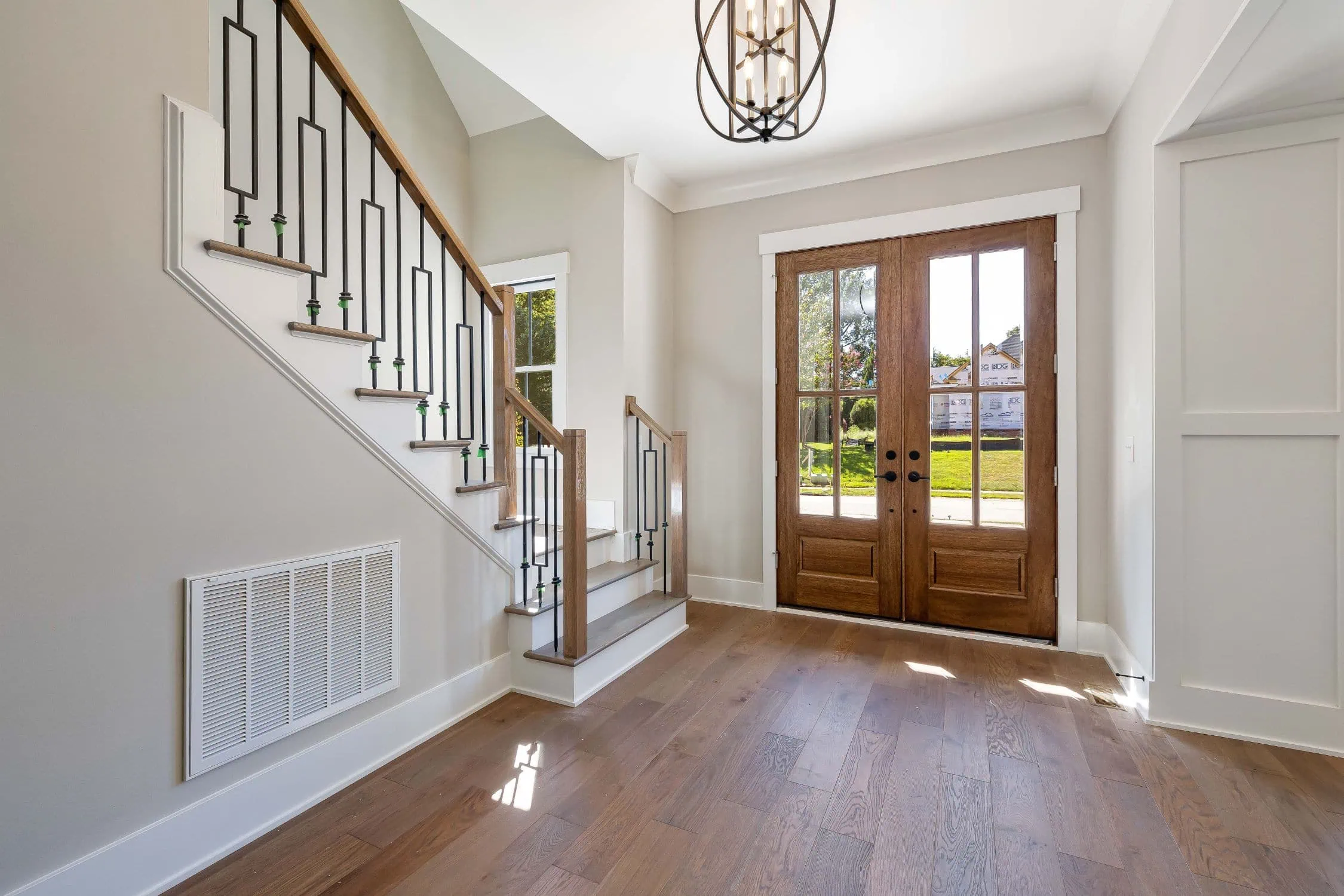
Read More:


